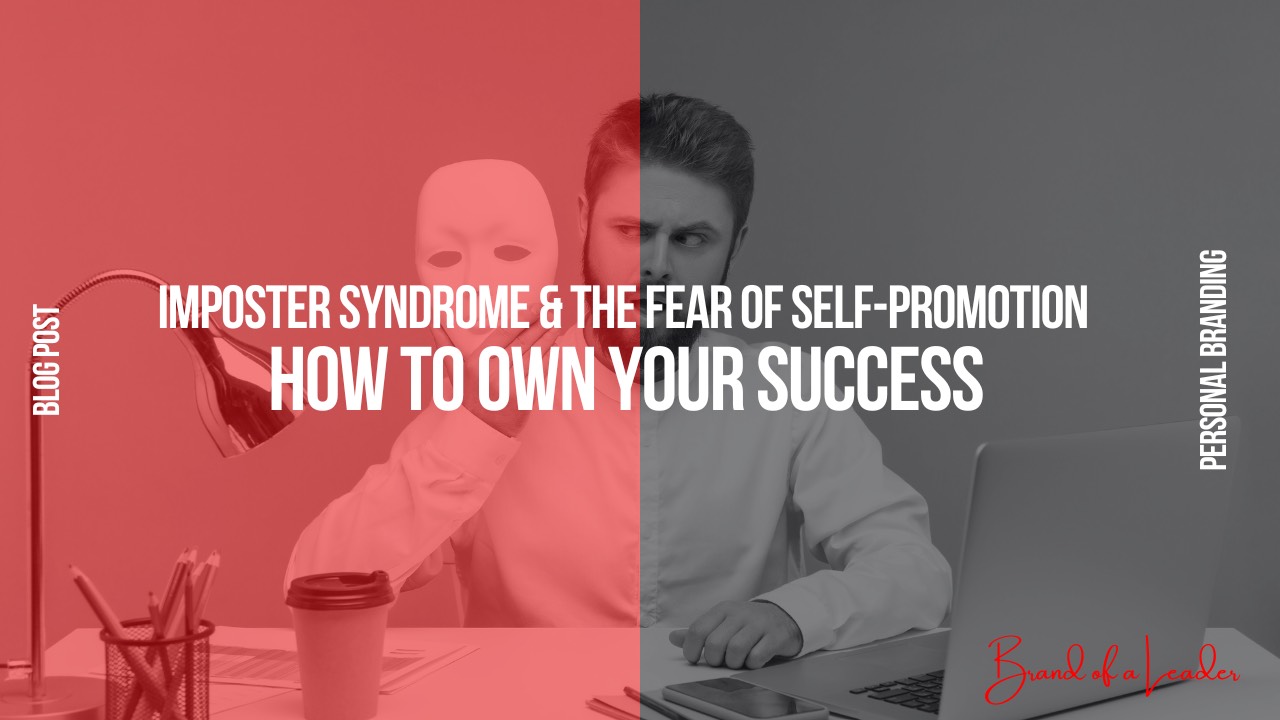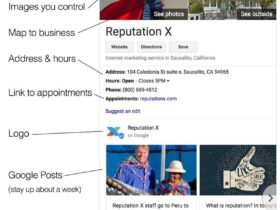By Alanna Fairey
Back in June, I was asked to speak at a conference my alma mater, Nottingham Trent University, was hosting. They saw me speak at the UN earlier this year, and invited me to give that same talk.
Having completed my masters there in 2022, being asked to come back as an industry speaker felt like a true full circle moment.
A week after speaking, I had my bi-weekly meeting with our co-founder Stefano. He asked me about the conference, and more specifically if I had experienced any form of Imposter Syndrome. Instinctively, I began to answer yes.
But then I caught myself: I realized I felt like an imposter talking about having Imposter Syndrome. I quickly changed my response to, “Actually, no, I take that back. I didn’t feel any Imposter Syndrome, I earned my damn place!”
Because it’s true. I’ve done so much in my career to have warranted a spot at this conference, and I’m (finally!!) at a stage in my life where I don’t give Imposter Syndrome much thought anymore.
But it wasn’t always like this. And as the first season of our Voice of a Leader podcast suggests, I am far from the only person in the world who has ever felt this way.
Imposter Syndrome is an all-too-common experience, especially for high-achievers. It’s that nagging feeling you’re not truly deserving of your accomplishments, and that sooner or later, everyone will find out you’re nothing more than a fraud. This paralyzing feeling prevents people from promoting their work, making it difficult to showcase your expertise, even when it’s necessary for growth.
But the reality is that owning your success and building a personal brand are non-negotiables in today’s competitive landscape.
So how do you overcome Imposter Syndrome and step into your potential? Here are a few strategies to help you confidently own your success without feeling like you’re faking it.
1. Reframe self-promotion as sharing value
One of the biggest misconceptions surrounding self-promotion is that it equates to bragging. For anyone struggling with Imposter Syndrome, this fear is amplified. But here’s the honest truth: self-promotion is not about boasting; it’s about providing value. When you highlight your achievements, you’re not only acknowledging your work but also offering insights, lessons, or solutions others can benefit from. Framing your successes as contributions to a larger conversation helps shift the focus from ego to impact.
Action item: Reframe your thinking about self-promotion by asking yourself, “How can my experience help others?” Focus on sharing valuable knowledge rather than just talking about yourself.
2. Acknowledge your accomplishments
Imposter Syndrome often stems from downplaying your own achievements. You may feel that you’ve been “lucky” or attribute success to external factors rather than your skills and effort. To combat this, regularly reflect on your accomplishments. Keep a list of your professional milestones: whether it’s getting your business off the ground, receiving positive customer feedback, or completing a major project. Seeing your achievements in black and white can help dispel feelings of inadequacy.
Action item: Start a “win journal” where you document your achievements, big or small. Review it regularly to remind yourself of your capabilities and progress.
3. Embrace vulnerability and authenticity
Imposter Syndrome thrives in silence. The more we keep our fears and insecurities hidden, the more power they hold over us. However, embracing vulnerability and being open about your challenges can be a powerful way to connect with others. In personal branding, authenticity is key. When you present yourself as a whole person—flaws, failures, and all—you become more relatable and credible. After all, aren’t we all a little splintered and battered?
Action item: Share your journey, including the struggles and failures, not just your achievements. Authenticity can deepen your connection with your audience and make your success story more meaningful.
4. Shift the focus from perfection to progress
People grappling with Imposter Syndrome often believe they need to be perfect to be worthy of recognition (guilty as charged!). Perfectionism creates a cycle of self-doubt and hesitation in promoting yourself, as you feel you’re never “ready” or “good enough.” I’ve tried to remind myself that instead of aiming for perfection, I try to focus on progress. Celebrate the steps you’ve taken and the growth you’ve experienced, even if you’re not yet where you want to be.
Action item: Next time you’re hesitating to share an accomplishment because it doesn’t feel “perfect,” remind yourself progress is always worth celebrating. Share what you’ve learned from the experience, even if it didn’t go exactly as planned.
5. Find your cheerleaders
You can’t fight Imposter Syndrome on your own. Surrounding yourself with a supportive network can be a game-changer. These are people—friends, mentors, or colleagues—who genuinely believe in your abilities and aren’t afraid to remind you of your worth. They can offer perspective when you’re too caught up in self-doubt and encourage you to step into your success.
Action item: Identify your “personal cheerleaders” and seek out their encouragement when you feel Imposter Syndrome creeping in. Sometimes, an outside perspective is all it takes to help you see your achievements more clearly.
6. Practice self-promotion as a skill
Like any other skill, self-promotion requires practice. Start by promoting yourself in smaller, low-stakes environments, such as among close colleagues or within your professional network. Over time, as you become more comfortable talking about your work, you’ll build confidence. As with anything, the more you practice, the easier it becomes.
Action item: Share your achievements in a smaller, trusted circle. Gradually expand your reach by posting on LinkedIn, writing a blog, or speaking up in meetings.
7. Work with a personal branding agency
If self-promotion feels daunting, working with a personal branding agency can be incredibly helpful. We specialize in helping clients craft and promote their personal brand in an authentic, effective way. We provide an objective perspective on your strengths and accomplishments, which can help you see yourself more clearly. A branding agency can also help you navigate the tricky waters of self-promotion, making sure your message is impactful without feeling like bragging.
Action item: Consider hiring a personal branding agency to help you develop a strategy for showcasing your expertise and achievements. They can guide you through building a consistent narrative and positioning yourself as an expert in your field while maintaining authenticity. Want to learn more about how Brand of a Leader can help you? Schedule a virtual coffee chat here!
8. Remember: your voice matters
When it comes to Imposter Syndrome, sometimes we’re our own worst enemy. But in truth, every individual has unique experiences and insights that are valuable. Your story—how you’ve navigated challenges, learned lessons, and achieved success—can inspire and empower others. When you share your journey, you’re contributing to a broader narrative of growth, learning, and success.
Action item: Reflect on the impact your work has already had on others. Whether it’s helping a colleague, solving a client’s problem, or mentoring someone, your voice has value. Keep this in mind when promoting your work.
Overcoming Imposter Syndrome and the fear of self-promotion is not about arrogance or boastfulness. It’s about recognizing the value you bring to the table and sharing it in a way that benefits others. By reframing self-promotion as a tool for helping, embracing vulnerability, and practicing these skills regularly, you can begin to own your success with confidence and authenticity.
Self-promotion isn’t about proving your worth or putting yourself above everyone else. It’s about celebrating your journey and the impact you’re making, on others and yourself.
So, take a deep breath, share your story, and own your success. Your voice deserves to be heard.
Alanna Fairey is a Client Engagement Specialist at Brand of a Leader. She has a diverse background in fashion communications, branding, and writing. Connect with Alanna here.















